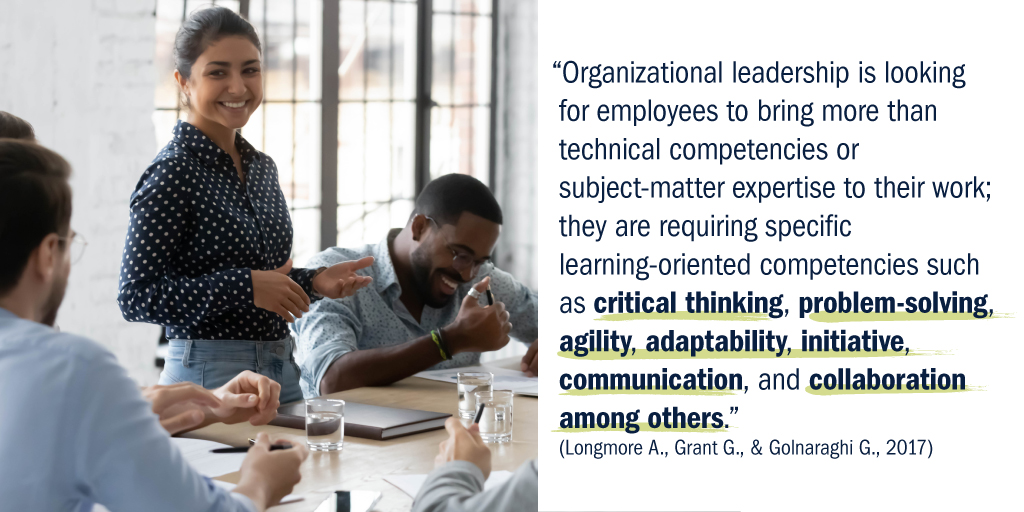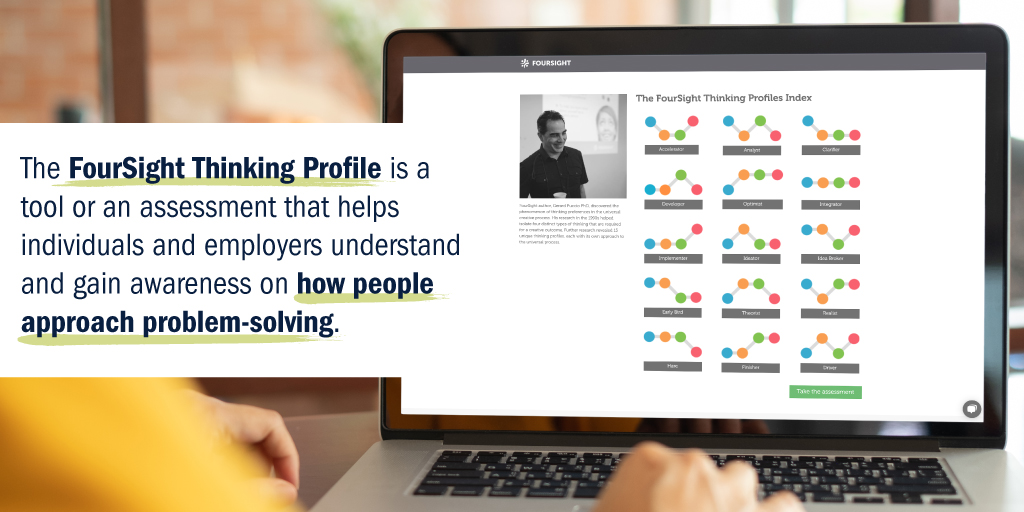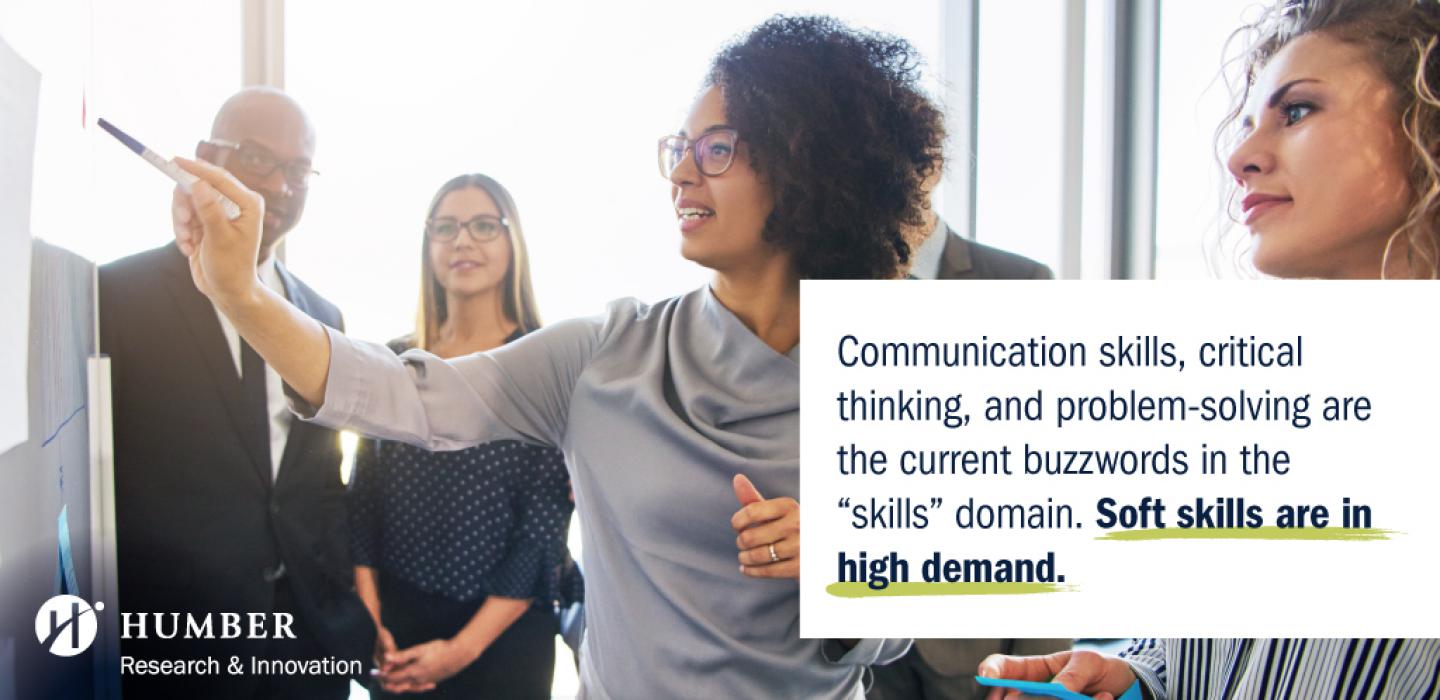“Communication skills and the ability to work well with different types of people are very important…software innovation, like almost every other kind of innovation, requires the ability to collaborate and share ideas with other people, and to sit down and talk with customers and get their feedback and understand their needs.”—Bill Gates
Communication skills, critical thinking, and problem-solving are the current buzzwords in the “skills” domain. Soft skills are in high demand.
Students graduating from postsecondary education (PSE) institutions, immigrants, and Internationally Trained Professionals (ITP) entering the Canadian job market in a post-pandemic era are required to complement their technical and trade skills with “soft skills” which are now considered critical for success in the workplace, especially as companies and business leaders re-evaluate the skills they require from their employees and prospective job candidates.
As part of a three-year study, researchers from the Office of Research & Innovation (ORI) at Humber College are measuring the impact of experiential learning opportunities on developing the essentially required soft skills that render these individuals job ready.
Humber College is a global leader in polytechnic education. In recognizing the challenges and demands for equipping learners with the knowledge, skills, and competencies to lead, innovate and successfully compete in workplaces, Humber continues to create opportunities for students to participate in hands-on experiential learning experiences through work-integrated learning and applied research. Humber’s Strategic Plan 2018-2023 clearly defines this in Pillar #1: Career-Ready Citizens.
“Education is not the learning of facts, but the training of the mind to think.” – Albert Einstein
At Humber’s Office of Research & Innovation (ORI), we are committed to supporting our faculty and researchers, along with our students, to participate in applied research & phenomenon-driven research through collaboration with a growing network of industry and community partners to solve real-world problems beneficial to the institution, the Canadian economy as well as our practitioners and students.
Value-added Offerings
ORI continues to innovate and meet the needs of our industry partners through value-added offerings. For example, we have recently curated a series of workshops for our industry partners, in our Summer Innovation Buffet, in addition to workshops offered to Humber faculty and staff. These workshops primarily focus on developing creative problem-solving skills, values-based innovation and adopting design thinking methodologies. We offer these workshops to our industry partners to empower them to incorporate these skill sets into their workforce for effectiveness and competitiveness in the age of innovation.
As another value-added offering, we now share the observations that emerged from assessing a data-set on measuring the skills required in the job market as part of a three-year research study. These findings are a clear indicator of soft skills required in the job market. We will continue to disseminate these observations through a series of “skills” related articles.

Measuring the Impact of 21st Century Experiential Learning on new Immigrants Workplace Performance
Dr. Ginger Grant, PhD., Dean, Research & Innovation, is leading a three-year research project on “Measuring the Impact of 21st Century Experiential Learning on new Immigrants Workplace Performance” as the Principal Investigator, along with Raeshelle M. Morris, Innovation Program Manager, ORI, as the Co-Investigator, in partnership with ACCES Employment Canada. In 2020, Humber College received funding for this project; it was awarded the College and Community Social Innovation Fund (CCSIF) grant for $360K through the Natural Sciences and Engineering Research Council (NSERC).
ACCES Employment (Accessible Community Counselling & Employment Services) supports newcomers with job search services across the Greater Toronto Area through physical locations and online. They also offer several training programs to upskill.
This study aims to research and measure the impact of–implemented and planned experiential learning opportunities on the employment readiness and actual employment of the Internationally Trained Professionals (ITP) who participate in ACCES’ bridging programs–to determine efficacy and effectiveness from both an ITP and employer perspective, and to use this data to inform decisions about which are, and which are not effective.
“Organizational leadership is looking for employees to bring more than technical competencies or subject-matter expertise to their work; they are requiring specific learning-oriented competencies such as critical thinking, problem-solving, agility, adaptability, initiative, communication, and collaboration among others.” (Longmore A., Grant G., & Golnaraghi G., 2017)

Analysis of Skillsets Required
In a series of data-sets that are being assessed, a research team led by ORI’s Innovation Program Manager Raeshelle Morris performed secondary research from surveys conducted by ACCES to analyze the data from the several training programs offered by ACCES on understanding the skillsets brought by immigrants and ITPs to the Canadian labour market, through the lens of The FourSight Thinking Profile.
The FourSight Thinking Profile is a tool or an assessment that helps individuals and employers understand and gain awareness on how people approach problem-solving. The profile indicators measure individuals’ thinking preferences, not abilities, and how they tend to effectively engage in a creative process to contribute to a team or organization’s innovation process. Each profile reflects the types of thinking an individual most prefers, with peaks and valleys as strengths and potential weaknesses. The emphasis is on learning about your preferences to assist you in anticipating the tools you may need to improve your innovative output.
These research questions guided the team:
- What is the ranking of the FourSight Thinking Profiles in the programs offered by ACCES?
- What is the link between these profiles?
- What are the skills required in the job market?

Results Highlighting Most Required Skills
Briefly summarizing, the FourSight Interpretative Guide (2014) identifies four basic profiles: Clarifier, Ideator, Developer and Implementer. In addition, eleven other profiles, as combinations of the basic profiles, are identified as: Analyst, Finisher, Accelerator, Theorist, Driver, Early Bird, Hare, Realist, Optimist, Idea Broker and Integrator (refer to the guide for an in-depth explanation).
The analysis of data gathered from ACCES from 2018 to 2021 informs that there are mainly eight programs that participants can avail themselves to upskill: Financial Services, Information Technology, Sales & Marketing, Leadership, Supply Chain, Human Resources, Healthcare and Electrical Engineering.
The analysis shed light on the peaks, observed as soft skills, identified in the profiles in relation to the programs, that encourage success when best utilized in a workforce, thus fostering a culture of growth and innovation.
In particular, based on the peak preferences of the FourSight thinking profiles and the ranking between the profiles and the programs, the research study identified that communication skills, critical thinking, teamwork, and knowledge of relevant software were the most required skills in the job market across the eight programs.
“We are currently living in the 4th Industrial Revolution where people have a fear of job loss due to automation. Soft-skills are now becoming a necessity for employee success in the job market; we need to upskill with soft skills or core skills which, at this point, cannot be replicated by technology.”
– Raeshelle Morris
The research study further identified:
- Top five most noticeable profiles: Integrators (flexible, teamwork, communication), Developers (implement ideas, analyze potential solutions), Clarifiers (straightforward, systematic), Implementers (decisive, action-oriented) and Analysts (calculative, scientific).
- In the middle of the profile spectrum: Ideators (generate ideas), Finishers (analyze solutions, implement ideas), Realists (analyze, implement rational solutions), Accelerators (identify, eliminate problems), and Theorists (highly conceptual, theoretical thinkers).
- Finally: Idea Brokers (innovation activists), Optimists (refining ideas), Early Birds (identify problems & solutions), Drivers (implementing ideas), and Hares (planners, imaginative).
Also,
- Accelerator, Analyst, Clarifier, Developer, Finisher, Hare, Ideator, Implementer, Integrator, Realist, and Theorist profiles are present in all eight ACCES programs.
- Optimists: Sales & Marketing, Information Technology, Electrical Engineering programs.
- Idea Brokers: Financial Services, Human Resources, Sales & Marketing, Information Technology.
- Driver and Early Bird profiles in all seven programs except Electrical Engineering.
Understanding the relationship between individuals’ thinking preferences and how their soft skills contribute to their specific area of expertise can benefit job seekers & employers alike, and academic institutions–to further develop and incorporate those particular skills in experiential learning opportunities.
A prominent recurring theme is that “soft skills” are the most required skills in the job market.

Skills Empowerment
This past year has exponentially propelled the need to develop soft skills and competencies that accompany industry trade skills and technical know-how to succeed in a post-pandemic era of digitization and innovation. A shift from a STEM to a STEAMS mindset is crucial.
As an academic institution committed to delivering globally-recognized polytechnic education, extensive work and effort went into the definition and implementation of Humber’s Learning Outcomes (HLO) Framework, which highlights key mindsets and skills required for success– from Systems Thinking, Critical Thinking to Communication, Innovation and Strategic Problem-Solving; through the development of these skillsets our students can be highly competitive in the workforce.
Skills Mapping Analysis
A data research team at ORI has conducted another in-depth research to identify the essential skills required by individuals in the Canadian job market across four industries: Telecommunications, Construction, Banking and Logistics. These skills have been referenced with skills and competencies developed through our programs at Humber College. Watch this space to read about it next week.
If you are a faculty member, we encourage you to share your thoughts on developing these essential skillsets in your classrooms and the workforce.
If you are an industry partner, we encourage you to participate in our Fall Innovation Buffet Workshops, which will be launched in October, where we deliver and disseminate valuable information on building an innovative and creative mindset.
If you are a student, we would love to hear from you on how your experiences with hands-on experiential learning and participation in research opportunities may assist you in developing these skillsets to give you a competitive edge in the job market.
References
- Longmore A-L, Grant G, Golnaraghi G. Closing the 21st-Century Knowledge Gap: Reconceptualizing Teaching and Learning to Transform Business Education. Journal of Transformative Education. 2018;16(3):197-219. doi:10.1177/1541344617738514
- ACCES Employment. (n.d.). Retrieved from https://accesemployment.ca/
- Career-ready citizens. (n.d.). Retrieved from https://humber.ca/strategic-plan/pillars/career-ready-citizens
- The foursight thinking profiles index. (n.d.). Retrieved from https://foursightonline.com/foursight-profile-index/
- FourSight® Thinking Profile Interpretive Guide Based on theory by Gerard Puccio, PhD. (n.d.).
- Gates, B. (2007, December). Business | bill gates: The skills you need to succeed. Retrieved from http://news.bbc.co.uk/2/hi/business/7142073.stm
- HLO framework. (n.d.). Retrieved from https://humber.ca/svpa/ilos/hlo-framework/
- Humber 2018-2023 Strategic Plan. (n.d.). Retrieved from https://humber.ca/strategic-plan/
- Research & Innovation, H. O. (n.d.). 2021 SUMMER INNOVATION WORKSHOP BUFFET- FOR INDUSTRY PARTNERS. Retrieved from https://www.humber.ca/research/2021-summer-innovation-workshop-buffet-for-industry-partners/
- Research & Innovation, H. O. (n.d.). Humber College Awarded Grants. Retrieved from https://www.humber.ca/research/applied-research-grants/
- Research & Innovation, H. O. (n.d.). Migrating from STEM to STEAMS. Retrieved from http://www.humber.ca/research/migrating-from-stem-to-steams/?_ga=2.115115335.1524949714.1628773013-215810917.1627994276
